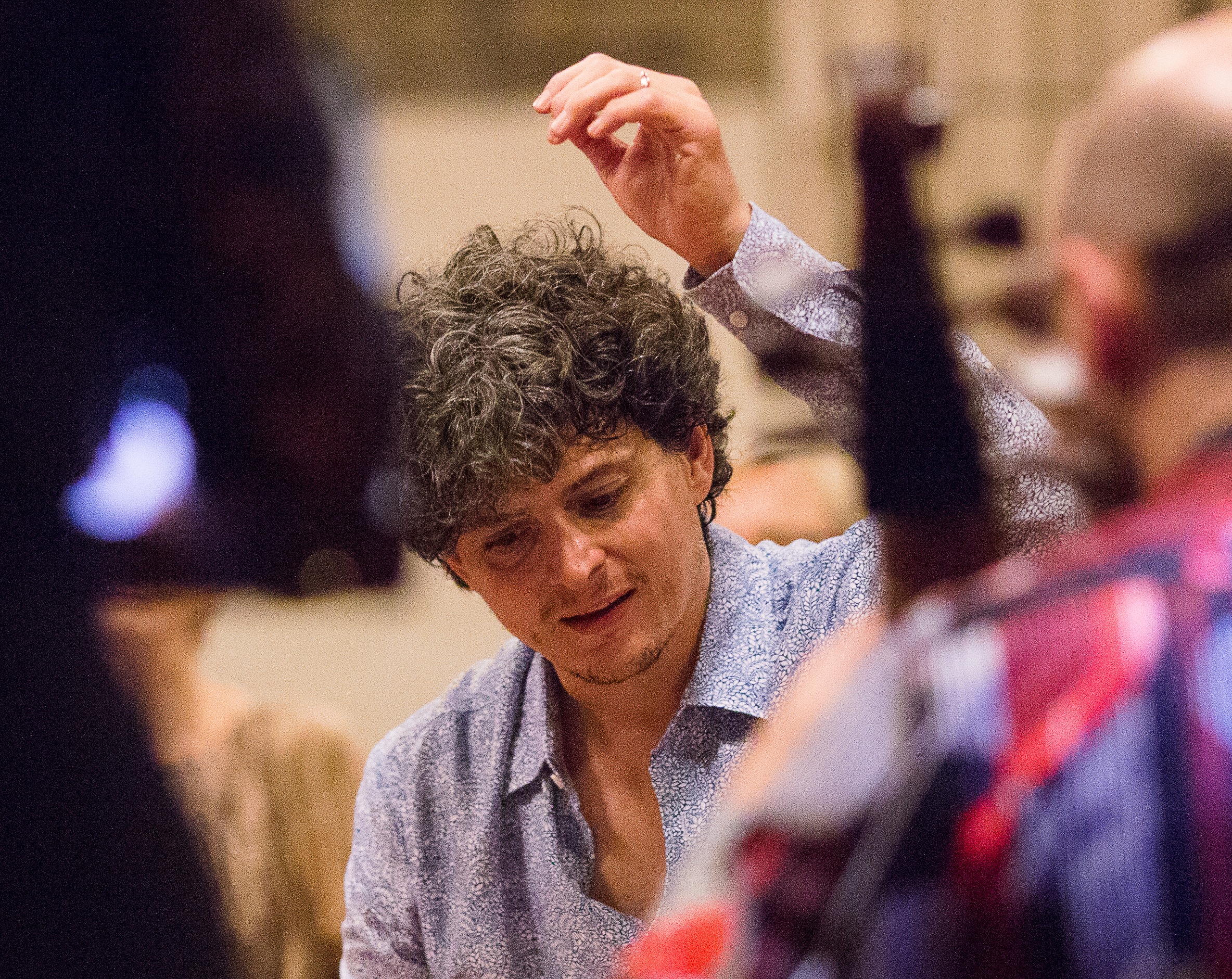This article is adapted from AQ’s print issue on how to make Latin American cities better
Latin America’s musical roots are deep and widespread. For our fall playlist, AQ highlights artists who speak to the region’s diverse musical heritage.
Magos Herrera – Dreamers
Mexico
Mexican jazz singer Magos Herrera’s collaboration with string quartet Brooklyn Rider carries a decidedly political message: The composers and writers whose work Herrera highlights on the album all endured censorship or political violence during their careers. This subtle call to justice adds deeper meaning to what is already a beautifully rendered collection of favorites from the Ibero-American songbook. Each track on Dreamers draws on its own world of sound, from the percussive effects, reminiscent of folk drums, on “Balderrama” to the eerie wails of the legendary crying woman in “La Llorona.” Herrera reveals herself as an imaginative composer in three tracks set to English versions of texts by Nobel laureates Octavio Paz and Pablo Neruda. As the singer puts it, the intention of this album is to “inspire people to keep dreaming.” Dreamers was released in September.
Delgres – Mo Jodi
Guadaloupe/France
The music of roots trio Delgres connects the history and culture of the French Caribbean with the blues of New Orleans. Sung in Guadaloupean Creole and English, the 12 tracks on Mo Jodi (Die Today) speak out against political and ra- cial oppression through the personal story of Pascal Danaë, the singer and founder of the band (which also includes Baptiste Brondy on drums and Rafgee on sou- saphone). Born in the suburbs of Paris to Guadeloupean Creole parents, Danaë didn’t travel to the island until he was in his 30s. The first track, “Respecté Nou” (Respect Us), is inspired by his discovery, in Guadeloupe, of his great-great-grand- mother’s emancipation letter, dated 1841. Delgres’ sound is remarkably varied, the album evoking both the search for identity and a Caribbean pride of place. “The whole Delgres project helps me really put my finger on where things are sore,” Danaë said. Mo Jodi, the group’s debut album, was released in August.
The Strachwitz Frontera Collection
U.S.-Mexico Border
For lovers of old-time Mexican rancheras and boleros, the Arhoolie Foundation and UCLA have a once-in-a-lifetime surprise: thousands of rare recordings from the early decades of the 20th century, available for free on their YouTube channel. Producer Chris Strachwitz, born in Poland in 1931, is the founder of Arhoolie and one of the leading figures in the research and study of traditional music from the U.S.-Mexico border. Over his decades of work, he collected hundreds of thousands of records from both sides of the border. The collection is the world’s largest repository of publicly released borderlands recordings, with over 130,000 tracks featuring legends like Lydia Mendoza and Lalo Guerrero as well as lesser-known artists performing corridos, mariachi, norteño and more. As of publication, Arhoolie and UCLA had posted over 40,000 songs, with hundreds more coming online every day.
—
Zubieta is director of the music program at Americas Society






